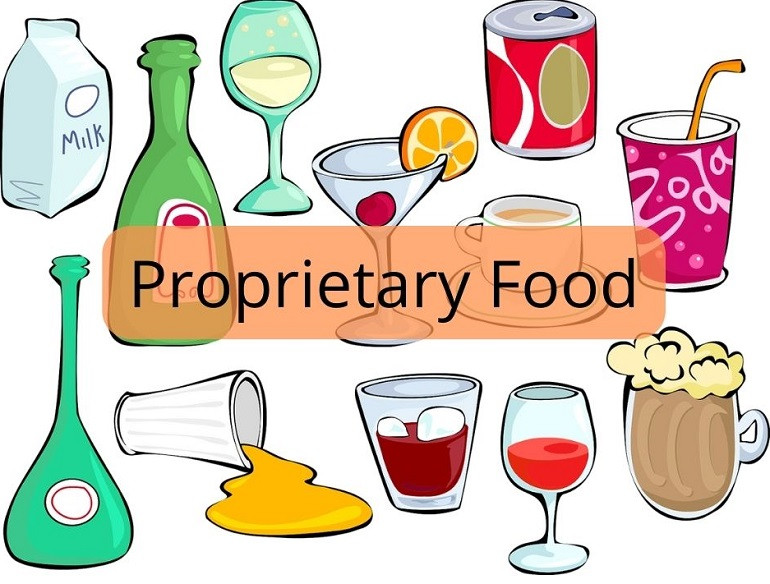

Proprietary Food under FSSAI
PROPRIETARY FOOD MEANING UNDER FSSAI ALONG-WITH PROPRIETARY FOOD EXAMPLES
I. INTRODUCTION TO PROPRIETARY FOOD
With the vision of building a “New India” by providing access to safe and wholesome food that will help the citizens to prevent diseases and lead healthy, happy lives, the Food Safety and Standards Authority of India since its inception has been a pioneer in establishing a global level of benchmarked food standards.
To better channelise all the regulations, FSSAI categorised food and beverage products into two primary groups namely:
A. STANDARDISED FOODS: The term "standardised food products" refers to those that fall within legal regulations such as fruit jam, sauces, carbonated water, biscuits etc. A licenced Food Business Operator is permitted to make and sell the standardised food products, as long as he conforms with the standards for the particular product listed in the act and rules.
B. NON-STANDARDIZED FOODS/PROPRIETARY FOODS: Proprietary Foods are those which are not standardised under any of the regulations however it may contain primary ingredients and some generic additives.
II. PROPRIETARY FOOD MEANING: GENERAL PARLANCE
You can thus presume that any food container marked as ‘Proprietary Food’ contains components other than those permitted by FSSAI standards as standard additives or colours.
The formulation of ‘Proprietary Foods’ belongs to the product's manufacturer who has curated that proprietary food, which may include non-standard food additives, colours, and chemicals but is safe for ingestion by humans.
“Thus, the product is branded as Proprietary Food to denote the inclusion of certain non-standardized additives, colours, and components.”
Simply put, in the case of proprietary food products you are the only one who has the exclusive food's recipe and ingredient list. Nobody in the entire world, like KFC Chicken or Coca-Cola, can create that without your consent.
III. THE LEGAL REGIME W.R.T. PROPRIETARY FOOD
The Regulation 2.12 of the Food Safety and Standards (Food Products Standards and Food Additives) Regulation, 2011 governs ‘PROPRIETARY FOODS’. FSSAI recognised the necessity to create a unique framework to produce and distribute ‘Proprietary Foods’ after observing the increased demand for these foods in India.
The lead regulator created unique food standards that adhere to comparable international best practices methodologies in order to provide all food industry operators confidence while preserving their freedom to innovate and create the ‘Proprietary Foods’
As defined in the Food Safety and Standards (Food Products Standards and Food Additives) Regulations, 2011,
“Proprietary food means an article of food that has not been standardised under these regulations, but does not include novel foods, foods for special dietary uses, foods for special medical purposes, functional foods, nutraceuticals, health supplements and such other food articles which the Central Government may notify in this behalf.
Provided that any deviation in quality parameters of a standardised food, as specified in the Food Safety and Standards Regulations made under the Food Safety and Standards Act, 2006 shall not qualify the resultant product as a proprietary food.”
Proprietary Foods can be made from standardised products like milk or milk products, cereals, eggs, meat and meat products, vegetables, fruits and nuts, etc. In some cases the food is merely modified, in the relative percentages of its component part.
IV. PROPRIETARY FOODS EXAMPLES
Although there is no defined/exhaustive FSSAI proprietary food list, some of the common proprietary food examples includes:
- Energy Drinks
- Custard Powder
- Ready to Consume products like Chips, Snacks, Namkeens, Instant Coffee & tea premixes, instant noodles etc
- Spice mix for different preparations
- Any other kind of instant mix are all proprietary food examples
V. OTHER REGULATORY GUIDELINES W.R.T. PROPRIETARY FOODS
Except for the ingredients that the Authority may from time to time specify, proprietary food shall only contain substances other than additives that are either standardised or approved for use in the manufacturing of other standardised food under these Regulations.
As long as the amount of vitamins and minerals in a proprietary meal does not exceed the recommended daily allowance for each micronutrient, it is permitted.
Proprietary food products shall use only such additives and at such levels, as specified for the Category or Subcategory under Appendix A of these Regulations, to which the food belongs. Such Category or Sub-category shall be clearly mentioned on the label along with the generic name, nature and composition of the proprietary food.
Proprietary food products shall comply with the microbiological requirements as specified in Appendix B of these Regulations. If no microbiological standards are specified for any foods or food categories in Appendix B of these regulations, proprietary foods falling under such food categories shall not contain any pathogenic microorganism at a level that may render the food product unsafe.
Proprietary food products must additionally adhere to the requirements of any further Regulations adopted in accordance with the Food Safety and Standards Act of 2006, as applicable.
For the safety of the proprietary food products with regard to human consumption, the food business operator shall bear full responsibility.
VI. QUICK FACTS REGARDING PROPRIETARY FOODS:
>> A proprietary food may not have a particular standard in the act by itself. However, the ingredients which it contains should adhere to FSSAI standards.
>> Proprietary food cannot be considered to have any special value owing to their appetising properties.
>> No health claims for proprietary foods may be made, either on the product label or in any other way, unless they are supported by appropriate, scientific data.
>> In some proprietary foods, one or more of the different constituents are separated and altered. While in other prosperity foods, partial or complete pre-digestion of the natural food is carried out.
>> Most of the proprietary foods are subjected to the action of heat while there are few types of proprietary foods that are prepared by what is known as "the cold process.



